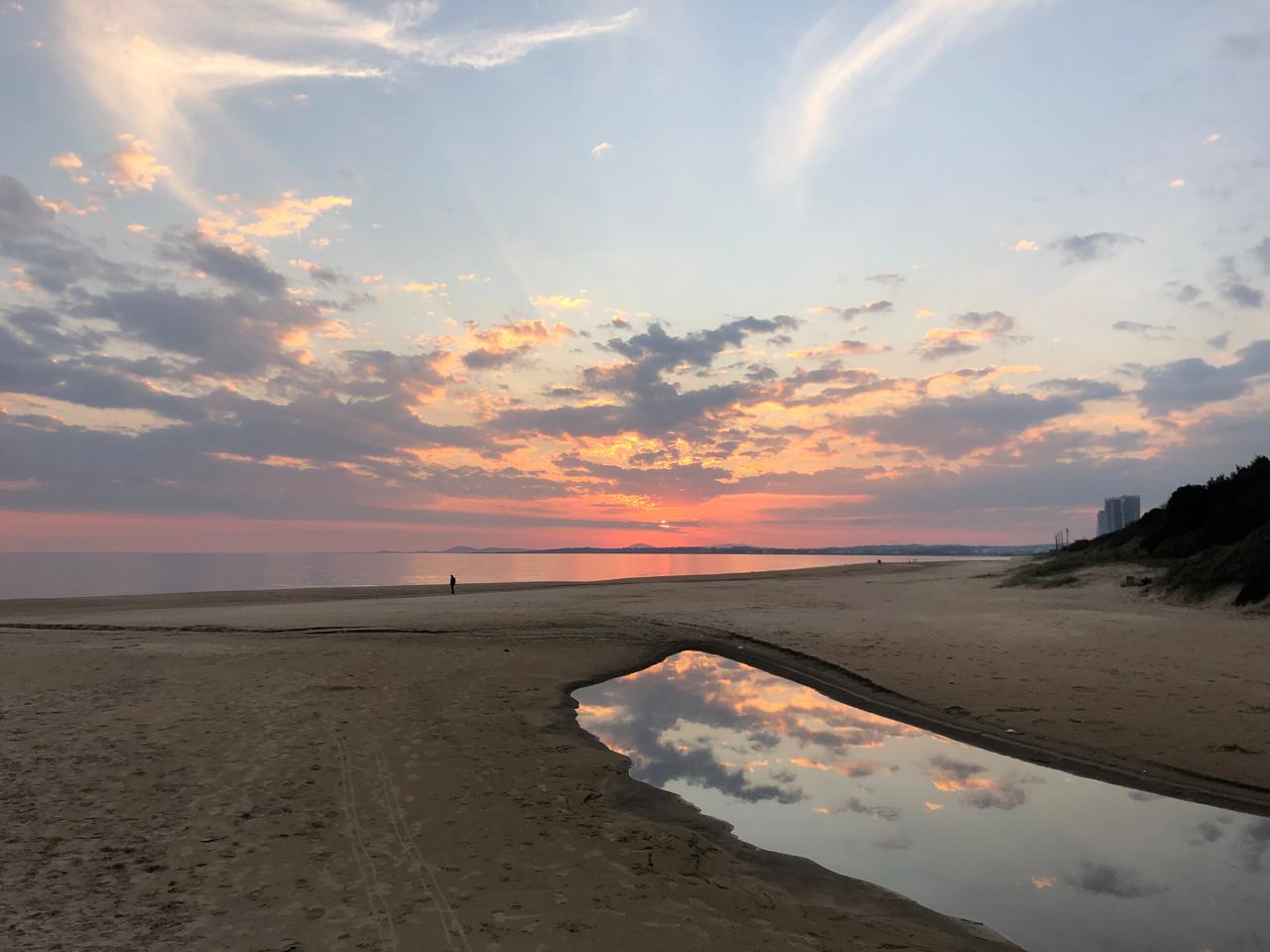OnTheBall Travels (Uruguay)
Uruguay has been long touted as the “Switzerland of South America” and since many notable expats & investors have sought to call it their home there has been much intrigue about this small farming country at the edge of South America. After a long 7 hour flight from Panama. We finally reached our destination in Montevideo! Here’s what we have to say!
Please stay tuned to our travel updates, our stock picks, our predictions about the macro situations and more--for free! No spam
The Country
Uruguay are perhaps the most ethnically homogenous country in South America, or in Latin America for that matter. A strong majority of their country come from European origin (and they look like it). Uruguay has an interesting history being fought over in a tug of war between the Portuguese and the Spanish (link at bottom). In a harsh way, a long time ago, the settled Europeans made an effort to eradicate indigenous settlers to guarantee that future conflicts wouldn’t take place–it’s brutal, but till this day, it has worked. Everybody here comes roughly from the same origin & they tend to all get along.

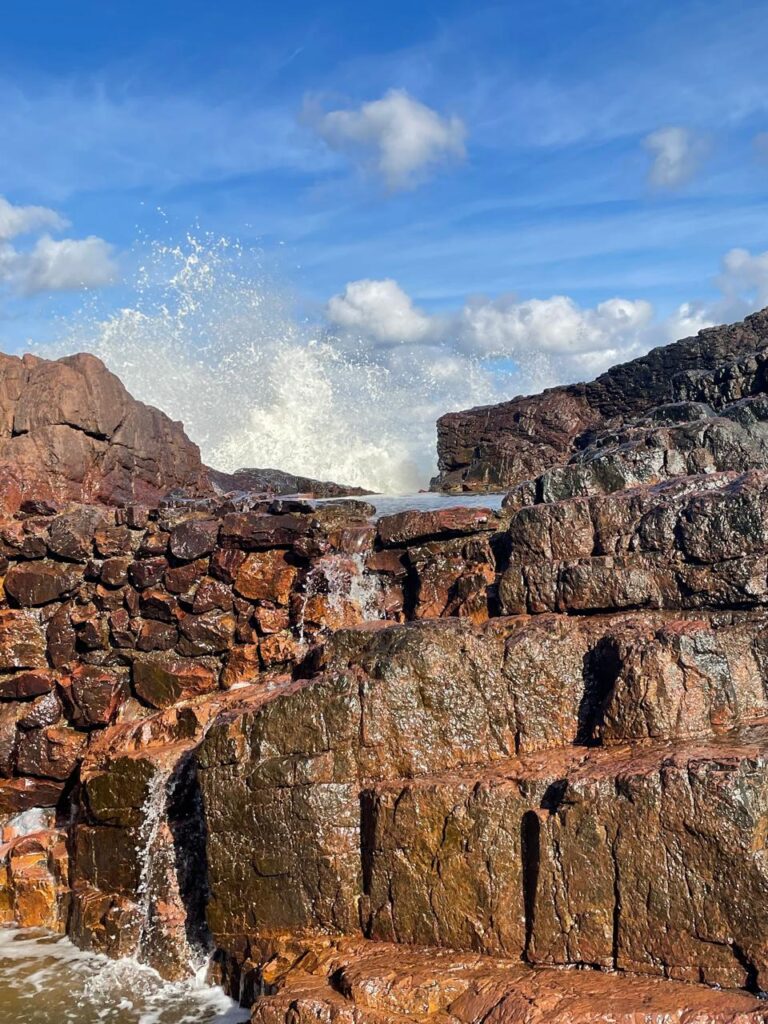
Uruguay has been one of the first socialist states when the ideas were first put forward. In fact, their prior president was a peculiar socialist who lived in the Uruguayan countryside who is revered throughout the country still. Uruguay is very much a welfare state. The tax system is generally unfavourable for consumption, local production (outside of ag) and terrible for importing goods/services. Most Uruguayans seek to leave Uruguay since they cannot rev enough profit themselves and the country is unnecessarily expensive–but i’ll come back to that. The key reasons why many continue to choose Uruguay is if you have foreign-sourced income you can avoid taxation, their banking system is quite good for the region and of their relative stability being a sleepy agricultural nation.
Outside of the city, it is not uncommon to see many of the homes only having one level and the backroads going unpaved. In other words, if you go off-road a little you can see the 3rd world show it’s face. On the other hand, “El Golf” in Punta Del Este has every home at around 1,500,000 USD with some touching into the 10s of millions. Uruguay is generally a sophisticated place, definitely compared to the rest of the continent.
Nomad Visa/Immigration
As for applying for residency, I cannot speak to specifics but nothing on the websites work and the nomad visa is in general disarray. You are asked to pay a small fee for the visa but are only allowed to pay using a local bank (which you absolutely would not have if you were applying for a nomad visa). Therefore you must apply while you’re in country. Moreover, many people have gotten in trouble because their tourist visa enabled them 90 days but the time to have an appointment AND receive your provisional identity card (nomad visa) was in sometimes months. In other words, you are forced to overstay your tourist visa (while waiting for your card) and in some instances, by the time they received their card, it was near expiration & they had to leave again. The card itself is required to show that you have a 6-month stay.
For the regular residency processes, we also found outdated websites, misinformation and government systems that would not function such as allowing us to book appointments, to pay, to move onward to the next page or select certain drop-down options on our forms. From what we understand, only about half of the documents are required to make an application but all must be physically present when attending an appointment. Every application for foreigners is technically an application for permanent residency (applicants for local work or schooling is on a temporary basis). They essentially grant you with temporary residency for a period of 12 up to 24 months (!!) and during this time they expect you to stay around 8-9 months a year in the country to prove your interest. If you prove your stay, you’re upgraded to the permanent residency–you thereafter only have to stay 5-6 months a year. Hence, Uruguay is a Plan A destination and not a Plan B destination since if you’re not present, your card will expire and you’ll have to restart the process again.
Uruguay also holds an interesting property with their citizenship whereby it holds the nationality and the citizenship separate. That is, Mexican-born Uruguayan citizens will be citizens of Uruguay but it will state that their nationality is Mexican. This can cause travel problems in various countries who do not recognize this document as legitimate.
Having said all this, the bar of entry is low–the main question market is whether you put in your time to actually living here or not.
Uruguay gives you 30-days of freedom allowing you to remain tax resident for a 153 day stay instead of 183; real estate investments of 450,000 USD or more also enable you to become fiscally resident after only 60 days of stay
Itinerary
Since it was our first time entering the country, we were asked for our photo to be taken for their records. The camera didn’t accept my photo, yet she ushered me onward anyway. The same happened with two others but she sighed with frustration, stamped the passport and let us proceed to baggage. During the whole process we were asked “Is this flight with Copa Airlines?”. Compared to a country like the United States, Uruguay is not in the mode of assuming your mere presence warrants you being a criminal. Good start.
We received the COT bus to Punta Del Este. The bus, like the flight before it, was quiet. There were no couples at all besides us, only single seats along the windows. The tickets were reasonably priced, and had about 20 stops from the airport to PDE. The bus station of Punta was not very friendly and hardly looked up at us when we asked for help, but I can attest to all the bus companies as being timely and very comfortable.
Things Noticed
- Your money doesn’t go too, too far here in terms of real estate rentals. The kitchens in all of the apartments we saw for rent (& airBNB) were tiny with little in terms of luxury (for a reasonable price). Argentina and Paraguay are far superior in this respect (but its not all bad).
- People are civilized. They will always allow pedestrians to cross when driving, they keep their chatter, music and behaviour to a minimum volume. Uruguay is the most sophisticated country in Latin America. We’ve noticed a lot high value items completely left alone and everything was clean for the most part (airport especially).
- Everybody keeps to themselves and I have not seen a single person heckle, bother, or harass anybody else; people respect privacy. Uruguayans definitely take a hands off approach to social interactions. They are very non-confrontational people. They hardly speak even, and live by a “speak if spoken to” mantra. Everybody goes about their own way at their own speed, everywhere.
- One relief, coming from noisy Mexico, was how quiet people were on the flight, waiting for their bags, in shops, in cafes, on busses, everybody kept to themselves.
- Businesses open later in the day and stay open later. People are slow to get out of bed and return late. Banks OPEN at 1pm.
- Lots of solo female out and about
- USD are accepted everywhere
- Everybody and their dog drinks Yerba Mate, wherever they go.
Spanish & Farmland
My spanish level is quite limited I’ll admit; but I struggled to comprehend it in Uruguay. I found they spoke fast and their accent is quite different than pronunciation in Mexico or Central America. Small tasks I likely couldn’t do without a Spanish speaker by my side. I think this is important to consider for those new to Latin America or Uruguay.
Those who are interested in farmland will be happy to hear that Uruguay is really nothing but farmland. Uruguay is a country that has 4 cows per person; chicken is abundant as are eggs; Uruguay is breaking into the wine market in a big way as well. There are major tax benefits for both livestock and agricultural production as well as the exportation of product. There is a lot of untapped land available for you.
From what we could tell, Uruguay hadn’t felt political (despite an election nearing), nor had it felt very business-oriented nor very lazy. In fact, it hadn’t provided much feeling at all, which makes me think it is a great place to escape the craziness of the world–if you can deal with the Spanish.
Unfriendly or Extremely Reserved?
Perhaps Uruguayans may be a little ‘too’ reserved for extremely outgoing or extroverted types. As mentioned, Uruguayans tend to “leave and let live” with their day-to-day. They respect the individual’s space and freedom and make an effort to not bother a couple of people. Everybody is on their own track and people are cognizant to not disturb it. Having said that, we’ve noticed outright omissions of help or clarity with many matters that we observed numerous times.
- We checked into a hotel and days later we inquired about the gym in the building. The person at the front-desk said where it was and said no more. The door to the gym was locked and we walked downstairs confused as the man stared at us. Then we went back to the room to inquire with our host who said that at the front-desk they have the key for the gym. Why did they not ask if we had it while checking in, what our room number was, check if our gym key was hanging behind them? Ask why we looked lost in the lobby?
- We were inquiring about their famous chivitto food for about 15 minutes and told a worker that we were going to go get one. When we returned they just stared at us (no inquiry on where we were, how we liked it, what we thought of it, etc.) after we were carrying a leftovers bag. He simply looked said, Que Tal?
- “What do you recommend for us to do?” “Ah these places [names 2 places] and just whatever you’re doing right now”. I couldn't have come across a more depressing welcoming offer
- We went to a bank to inquire about opening up an account. They assured us we could. We ensured that we were non-residents and that our businesses were as well. They said no problem. They told us the requirements for a business bank account. We went over all the exact documents required, fees, times to open, we went over where we were staying, only to find out that foreign companies aren’t accepted after a third time clarifying. Why didn’t you specify this to begin with? Why drag me along?
- The funniest was, “Where are you from?” To which we answered the countries, Canada, USA, Mexico… and they simply go, “Ahh..” (refer to the GIF below). No “is it hot there? Dangerous? What’s it like? Canada–must be cold! Wow you are on the other side of the world aren’t you! How long are you here for?” Just, "your answer doesn't warrant a reply..."
- We needed new plug outlets to charge our computers so we had to go shopping for new devices. Besides the fact that he deliberately sold us two opposing outlets (or we were stupid enough to buy them without noticing), they sought to sell us these other charger devices. To which one of us basically said, “Does it work?” and he said you bet… and when we went to show that one thing plugged into another– it totally didn’t fit at all. Was he mistaken or trying to rip us off?
- The Spanish-speaker of our group tried to reach out to generate conversation sensing a very quiet coffee shop as a chance to get to know somebody & the area, “are you from here?”, “Is this how you say ‘X’ here?”, “What time are you open till?”,”Is it normally this cold?” <–in each situation they have simply answered the question briefly and said no more.
- Obviously I speak English & prefer to rely to Spanish speakers with inquiries. When speaking Spanish to explain something (directions for the bus) they perfectly allowed my associate to translate back and forth to me. A game of catch between languages. Finally, at the end of the conversation, we find out that they speak English all along. Why didn’t you speak up once you notice that I speak English?!
- Lastly, “Does you sell tickets to go to Punta Ballenas?” —Yes, of course! *speaking amongst ourselves for 1-2 minutes* Okay great, we’ll have two tickets to Punta Ballenas, please —Oh you can’t book that. –But I thought you s–No you can’t book a bus for there, it’s too short of a distance.
Why didn’t you say so!?

In some sense, it feels almost rude that they withhold information or deliberately do not speak up about something. It’s not like they’re not used to foreigners since they receive 10% of the tourism of all of South America. I know this may be sounding like a “Karen” review on Yelp, but it felt like these people were deliberately making our lives more difficult without explaining further or inquiring about anything themselves or engaging in general discussion.
Every situation we’ve found ourselves in was, “Speak if spoken to”. As we’ve read on the internet, people do tend to stay within their friend groups and are reluctant to open up that group.
It’s worth saying that people are friendlier after they see your face a couple of times* If you’re a frequent customer or client, they will be more smiley and engaging and that this doesn’t take away from the benefits of Uruguay.
Punta Del Este is the place to be
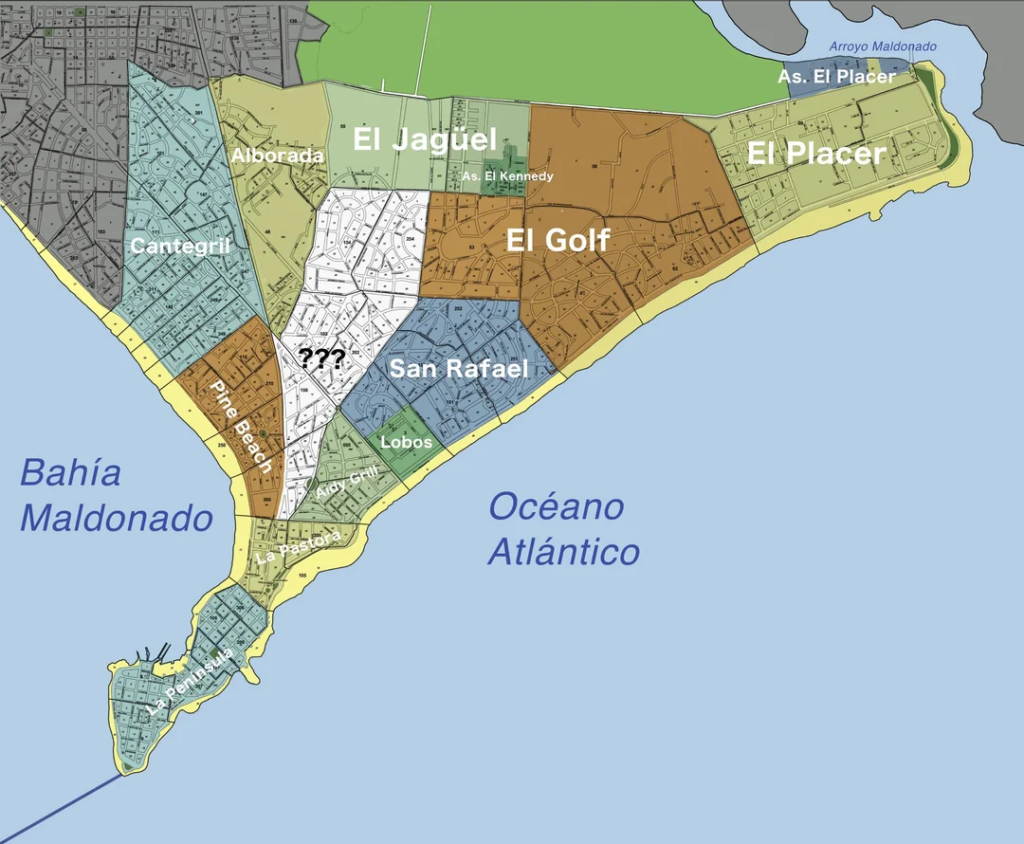
San Rafael and El Golf probably has the nicest homes.
- It’s quiet, pleasant and tranquil (at least during Fall/Winter)
- The place is in a relaxing, peaceful mode of life. It’s the perfect get away spot to have your own daily routine for walks, fishing, surfing, sunsets, cycling, beach yoga, etc.
- Many people like to stay in their cars around the whole peninsula to gaze at the sunset drinking their mate. Many of these cars are noticeably very nice, but many rougher looking cars from throughout the country make Punta their mate parking spot, too
- There are few children and I reckon the average age looks something like 50? Everybody walks in pairs for some reason. Two women. Two Men. or a dating couple. That’s it–few groups. The city is a ghost town during Winter. The dynamic of PDE is unique in that at peak times it could house 1,000,000 people whereas if you solely look upon the residents, there’s about 40,000 people who reside here year round.
- Everything is expensive. So much so that they PAY foreigners to use their foreign credit cards. Rather than reduce taxes and regulations on the overall cost, they keep it and then incentivize foreigners to buy by providing them a 10-25% discount on their purchase. I pay them, they pay me back? The locals lose out.
- Here is far superior to Montevideo. Montevideo is quite dangerous once you leave the affluent areas along the Rio. There’s about 8 districts that are highly regarded and safe but further North, it can get shady, quickly. Prices in Montevideo are not cheap either.

Suicides
Uruguay as “one of the safest and happiest countries” in Latin America, the local suicide rate is double the average for the region. The trend is so bad that it’s become known for having this problem. In 2021, in the midst of the pandemic, an increase was recorded that reached a value of 21.6 that continued in 2022, reaching 23.2 deaths by suicide per 100,000 inhabitants. This is a total of 823 deaths in the year. If you examine 50% of the population that has suffered a self-elimination attempt, this sample are all under 30 years of age.
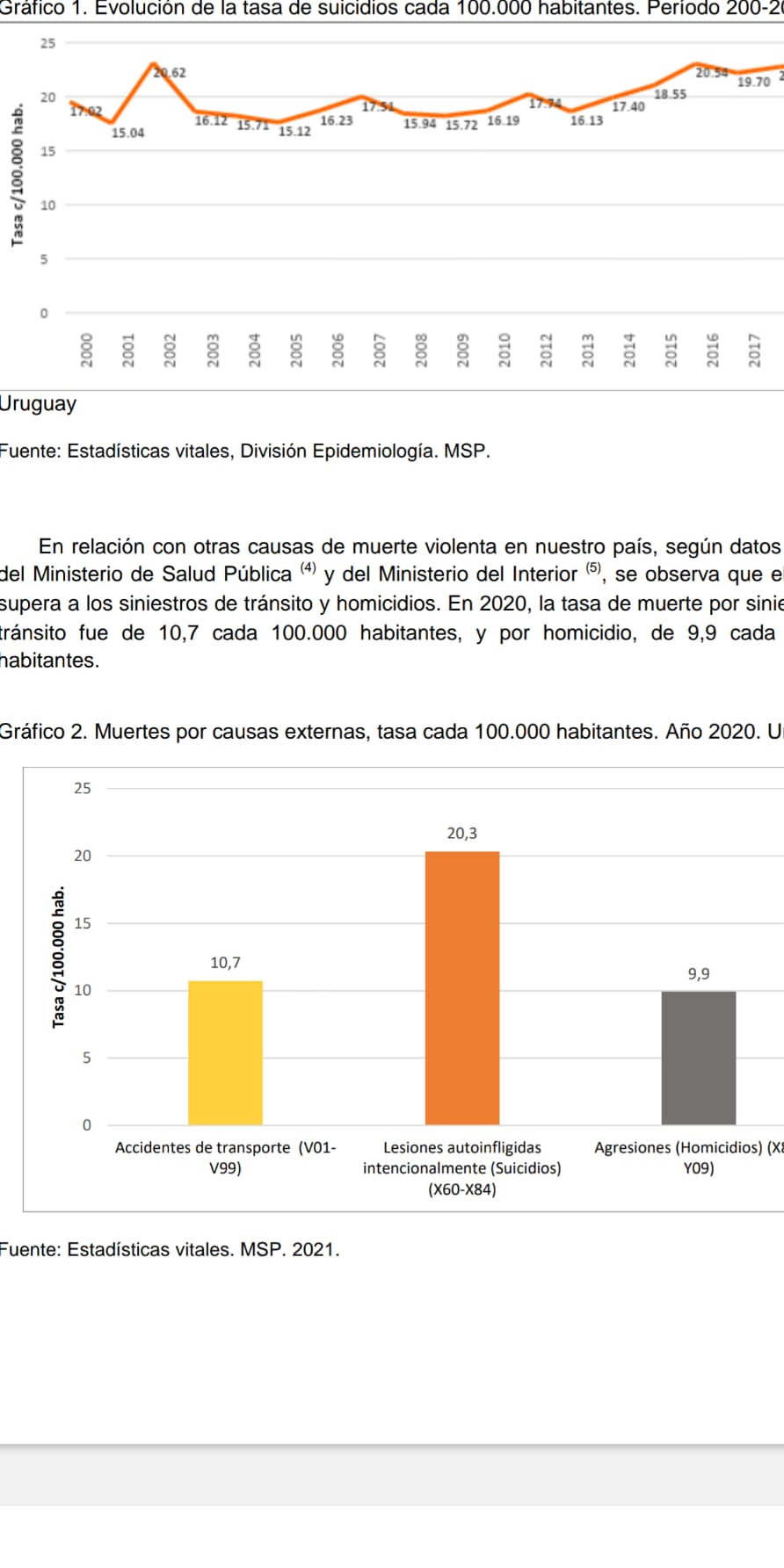
23.2 per 100,000 death rate is about the number of homicides Mexico or Colombia (MEXICO!) have every year. Again this is just one ‘type’ of death, but that is a considerably high rate of suicide. People do seem quite depressed and to themselves, but not suicidal. Although it’s worth mentioning that I believe myself to be well-behaved, quiet & certainly not desiring attention but I always found myself to be the most “lively” or expressive person on the street.
Perhaps bad timing, but the weather wasn’t too nice during Winter; I can see why the cities empty out
Okay, So Who is Uruguay For?
- Someone wanting to diversify their money in the banking system here, in land or in real estate. In fact, for Argentines and Brazilians, Uruguayan real estate in some sense is their bank account since their domestic systems are defunct. It’s a piece of the puzzle for an international portfolio. Offshore companies also may hold zero tax. Uruguay has no import taxes on gold.
- Uruguay has been remarked to be a great place to “get away from it all” during global conflicts and honestly, I cannot dispute that title. It is very quiet, pleasant, tranquil and life goes on here freely. Despite being surrounded by a dictatorship in Brazil and constant failures & desperation of Argentina, it has totally separated itself from this.
- I cannot speak with any sort of detail given it’s not my field but someone who wants to develop an interest to farming. You have the stability, the employment backing, the land for sale, the diversification of crop or livestock, the water assets nearby, the mellowness and stability of the currency + tax savings.
- Gun enthusiasts. They have raised the number of guns that you are legally able to hold now to 8 firearms.
- Those who are surviving on foreign capital. There is an 11-year tax exemption on certain foreign income for new residents. They do not tax capital gains from foreign sources, ever. After the 11-years, you are taxed on dividends & interest at 7%. They also have a new program where investing around 460,000 USD into land/real estate can provide you with permanent residency and only the liability of being there for 60 days to hold onto fiscal residency. Great for businessman who need to be actively travelling.
- Europeans! This country is essentially a European country by behaviour, language, ethnicity, high-trust society, living costs and traditions. If you’re wanted to leave the dying EU, consider it!
- Those who love cash! Uruguay has recently made it possible for cash payments all the way up to 100,000 USD can be a valid form of payment without having to go through any clearing systems. This is very important for those looking to escape from the CBDC (of which Uruguay is not interested in pursuing)
- World War 3 Preppers. Uruguay produces enough food for 49M mouths despite being a population of 3.8M. They also can run a considerable amount of their energy resource by using hydropower which allows them to forfeit the reliance on hydrocarbon imports. Moreover, they have significant access to water reserves as this shapes up to be a problem as well. Uruguay is first and foremost an agricultural nation, they will not abandon this and I have to imagine secure healthy food and water are very important in war-time. Also, their non-confrontational nature is a nice little side. Their track record in the first two World Wars has been good as well.
- Raising a family. There are many young families around (Punta is a little different) and we found out that many of them are from Argentina looking for a better future for their boys and girls.
Who is Uruguay NOT For?
- For people who are seeking entertainment. Punta Del Este is a pretty wild party town for 2 months out of the year. Other than that, the people are not in the mode of entertainment, excitement, welcoming tourism or exceeding friendliness. We found making friends was difficult & “excitement” to be lower.
- For someone with a constrained budget. Uruguay, either due to their 22% VAT, insane import duties or neighbours storing their money here have very elevated market prices. A recent Polish study found that they are the 23rd most expensive country in the world in line with the costs of France and Italy (making it the most expensive in LATAM). It may be cheaper than Canada or USA, but it’s hard to notice a huge savings.
- Those who are novice to Spanish. I find the Spanish to be very fast, with an accent and many words are different compared to Central America or Mexico. It’s difficult for me to comprehend at times. We found that few knew English, the ones who did, were from Argentina.
- For people wanting to limit red tape. Uruguay, holding its roots as a socialist country has a lot bureaucracy that makes life more frustrating than difficult. People seem perfectly content with complaining, than changing the way things are done to become more streamlined.
- Opening an offshore company. It’s great for a certain purpose. But the reality is it’s going to cost you between 2,000-6,000 USD and that there’s likely better alternatives.
- For someone looking to move here for employment. I’ll skip the details but it’s a bit of a nightmare for taxes, fees, licenses, proofs, notarizations, tariffs. You do not want to get caught up into this system.
- For a professional consumer. Even though Mercado Libre is domiciled here for tax purposes, they have made it very difficult, cumbersome and expensive (2-4X the cost) to consume something that an American could have within 20-40 minutes. Imports for home design are outrageously expensive. Even importing your own item from another country is a long-expensive process. You’re not going to have your art-packed & antique displayed mansion here.
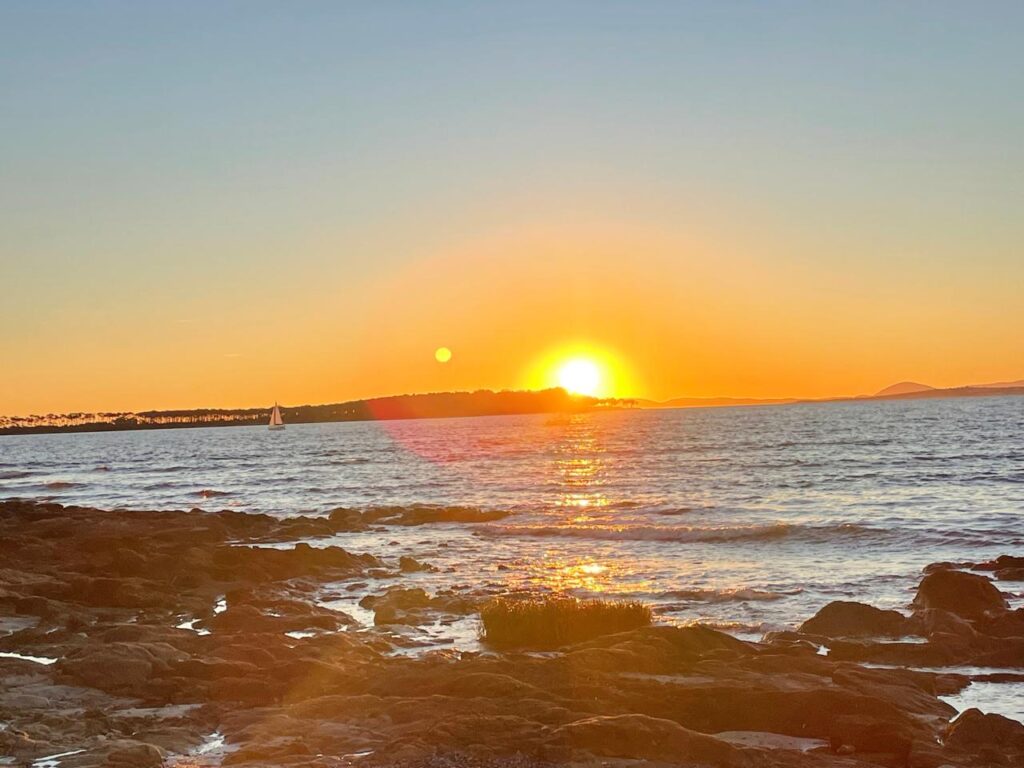
Question Marks That Remain
- Will Uruguay remain safe? Uruguay has been gifted with their very first Narco cartel who primarily focus on shipping guns and cocaine to Europe
- The country has seen a stark increase in crime, lots in Montevideo. Will this worsen?
- Will the country’s suicide rate fall?
- Will the leftists politicians who are running reverse everything like they have in Chile? Will they ruin their stability with rules and regulations?
- Will inflation drastically hit Uruguay given that their baseline is already considerably higher than the rest of the content? How the heck do locals afford life!?
- Will you be able to access the country as easily if flights go away (there’s only limited routes to their solo airport right now).
Closing
Summing all together, I left with a confirmation that I was able to confirm all the positives of the country that are mentioned by expats, nomads and investors. Uruguay felt not only physically disassociated from the decaying world, but emotionally, culturally, spiritually (I mean this in a positive sense). Having said that, it was a place that felt cold, depressed and lost in between weed puffs and mate sips (every second of every day)–if (here’s the key) you let it. Uruguay is in my opinion one of the best places to get away from the craziness and live your own independent life unbothered by locals. You will grow bored here IF, you let yourself.
While Uruguayans struggle in their high tax, high regulation, red-tape, high-cost of living–Uruguay shines as a bug-out for wealthy folks (mostly Argentines) that rent out their homes a long the beach for prices you’d see in St. Barts, Cayman Islands or Bermuda. These foreigners save using their foreign credit cards, save on their foreign income (no tax) & live quietly–while the locals seem to live separate in their own cliques in the center of the country. Zooming out, I believe if you’re not farming, the maximum benefits are felt if you’re not Uruguayan.
For this reason, I think Uruguay is a fantastic place to be but the bottom line is that you need some capital to afford the rentals/real estate/land and elevated prices on the groceries while you’re here. Your tax savings will be justified if you have sufficient income from abroad. It can be an escape hatch for doomsday folks, but as I have said before–your World War 3 hideout is terrible if it costs you everything just to make it work. If not, it is the perfect place to live your own independent life or raise children while guaranteeing that you’ll watch World War 3 on your computer screen and not from your porch.
Put Uruguay on your list!
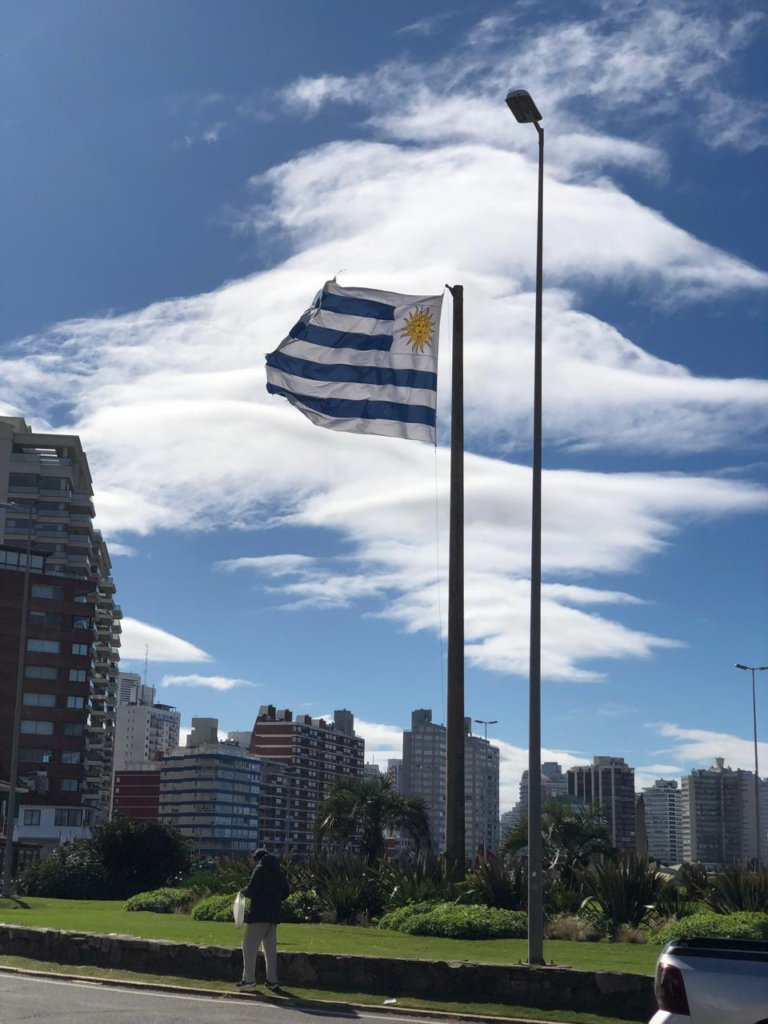
#StayOnTheBall
